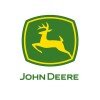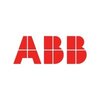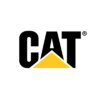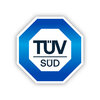
i
Thermax
Limited
Filter interviews by
Thermax Limited Shift Incharge Interview Questions and Answers
11 Interview questions
Boiler scale can be treated using chemicals like phosphates, sulfamic acid, or citric acid to dissolve and prevent buildup.
Phosphates: Used to prevent scale formation by sequestering calcium and magnesium ions.
Sulfamic Acid: Effective for descaling and removing hard deposits from boiler surfaces.
Citric Acid: A biodegradable option that can dissolve scale and is less corrosive.
Boiler scale formation is caused by mineral deposits from water, leading to efficiency loss and potential damage.
Hard water contains high levels of calcium and magnesium, which precipitate and form scale.
Temperature increases in the boiler can accelerate scale formation, as seen in high-pressure systems.
Poor water treatment practices can lead to inadequate removal of scale-forming minerals.
Examples include calcium...
Boiler feed water should ideally have low hardness to prevent scaling and corrosion, typically below 100 ppm.
Hardness in water is mainly due to calcium and magnesium ions.
High hardness can lead to scale formation on boiler tubes, reducing efficiency.
Feed water hardness should ideally be below 100 ppm for optimal boiler operation.
Water softening techniques, like ion exchange, are often used to reduce hardness.
For e...
Softener charge involves adding the right amount of salt and water to regenerate the resin beads in a water softener system.
Check the salt level in the brine tank; it should be at least half full.
Add the appropriate type of salt (rock salt, solar salt, or evaporated salt) to the tank.
Ensure the water level in the brine tank is sufficient to dissolve the salt.
Run a regeneration cycle to allow the softener to rechar...
Safety valves are designed to prevent overpressure in a system by releasing excess pressure. The valve that pops up first is typically the one set to the lowest pressure threshold.
Safety valves are set at different pressure thresholds to ensure that the system does not exceed its maximum pressure capacity.
The safety valve that pops up first is usually the one set to the lowest pressure threshold, as it will activa...
A hydro test evaluates the integrity of pressure vessels by filling them with water and checking for leaks or weaknesses.
Hydro testing is commonly used for pipelines, tanks, and pressure vessels.
The process involves filling the vessel with water and pressurizing it to a specified level.
It helps identify leaks, weak points, or structural failures in the equipment.
For example, a gas pipeline may undergo hydro testin...
There are several types of bearings used in various industries.
There are two main categories of bearings: plain bearings and rolling bearings.
Rolling bearings can be further classified into ball bearings and roller bearings.
Ball bearings include deep groove ball bearings, angular contact ball bearings, and thrust ball bearings.
Roller bearings include cylindrical roller bearings, tapered roller bearings, spherical ...
MOC of superheater coils refers to the material of construction used for the coils in a superheater.
Common materials of construction for superheater coils include stainless steel, carbon steel, and alloy steel.
The choice of MOC depends on factors such as operating temperature, pressure, and corrosive environment.
Regular inspection and maintenance of superheater coils are essential to ensure optimal performance and...
Water treatment of DM water and Drum water speciation involves processes to remove impurities and ensure water quality.
DM water treatment involves processes like reverse osmosis, ion exchange, and UV sterilization to remove impurities.
Drum water speciation involves analyzing the chemical composition of water in drums to ensure it meets required standards.
Both processes are crucial in industries like pharmaceutical...
Cooling towers are heat rejection devices that use water to remove heat from a process or system.
Cooling towers work on the principle of evaporation, where heat is transferred from the water to the air through the process of evaporation.
The hot water from the system is pumped to the top of the cooling tower, where it is distributed over the fill media to increase the surface area for evaporation.
As the water evapo...
Thermax Limited Shift Incharge Interview Experiences
11 interviews found
I appeared for an interview before Apr 2021.

(2 Questions)
- Q1. Boiler lightup, emergency activity, achivement,full job profile,introduction
- Q2. Lightup processer Troubleshooting Emergency condition
Interview Preparation Tips
I appeared for an interview in Aug 2024.
(2 Questions)
- Q1. Boiler Related questions such as efficiency, Maintenance schedule, Chemicals used in boiler water and O&M
- Q2. Compressor Maintenance and operation related. Parameters readings.
(2 Questions)
- Q1. Technical,Manpower Handling and safety rules.
- Q2. Shift Scheduling, Report Making and sending to higher authorities.
Interview Preparation Tips
I appeared for an interview in Jul 2024.
(9 Questions)
- Q1. PH booster ka code word bataiye
- Ans. PH booster ka code word 3006
- Q2. Anti oxygen chemical ka code bataiye
- Q3. Anti sclant ka code word bataiye
- Q4. Boiler scale jamne ka Karan bataen
- Ans.
Boiler scale formation is caused by mineral deposits from water, leading to efficiency loss and potential damage.
Hard water contains high levels of calcium and magnesium, which precipitate and form scale.
Temperature increases in the boiler can accelerate scale formation, as seen in high-pressure systems.
Poor water treatment practices can lead to inadequate removal of scale-forming minerals.
Examples include calcium carb...
- Q5. Boiler Patti ka temperature kitna hota hai
- Q6. Softener charge kaise karte hain
- Ans.
Softener charge involves adding the right amount of salt and water to regenerate the resin beads in a water softener system.
Check the salt level in the brine tank; it should be at least half full.
Add the appropriate type of salt (rock salt, solar salt, or evaporated salt) to the tank.
Ensure the water level in the brine tank is sufficient to dissolve the salt.
Run a regeneration cycle to allow the softener to recharge th...
- Q7. Boiler ka Feed Water kitne hardness ka hota hai
- Ans.
Boiler feed water should ideally have low hardness to prevent scaling and corrosion, typically below 100 ppm.
Hardness in water is mainly due to calcium and magnesium ions.
High hardness can lead to scale formation on boiler tubes, reducing efficiency.
Feed water hardness should ideally be below 100 ppm for optimal boiler operation.
Water softening techniques, like ion exchange, are often used to reduce hardness.
For exampl...
- Q8. Sapna charge karne ka Tarika bataiye
- Q9. Boiler mein scale hogi to kaun sa chemical use karenge
- Ans.
Boiler scale can be treated using chemicals like phosphates, sulfamic acid, or citric acid to dissolve and prevent buildup.
Phosphates: Used to prevent scale formation by sequestering calcium and magnesium ions.
Sulfamic Acid: Effective for descaling and removing hard deposits from boiler surfaces.
Citric Acid: A biodegradable option that can dissolve scale and is less corrosive.
Interview Preparation Tips
- Q1. What is fomeing
- Q2. What is carryover
- Q3. What is dearator function
- Q1. My past work experience
- Q2. Any basic GK

(2 Questions)
- Q1. Boiler and turbine trouble shooting Boiler opration
- Q2. Turbine operation interlock
Interview Preparation Tips
I appeared for an interview in May 2023, where I was asked the following questions.
- Q1. Basic Safety measure
- Q2. Technical question
I applied via Naukri.com and was interviewed in Nov 2022. There were 3 interview rounds.

Discussion about your last experience
(3 Questions)
- Q1. Salary discussion and selection procedure
- Q2. Salary discussion and procedures
- Q3. Reduce the process time and call back to early
- Ans.
To reduce process time and call back early, we need to analyze the current process and identify bottlenecks.
Analyze the current process flow
Identify bottlenecks and areas of improvement
Implement process improvements such as automation or streamlining
Monitor and measure the impact of changes
Continuously review and improve the process
Interview Preparation Tips
Skills evaluated in this interview
I applied via Walk-in and was interviewed before Oct 2022. There were 2 interview rounds.

(8 Questions)
- Q1. Explain About yourself ?
- Q2. About Hydro test?
- Ans.
A hydro test evaluates the integrity of pressure vessels by filling them with water and checking for leaks or weaknesses.
Hydro testing is commonly used for pipelines, tanks, and pressure vessels.
The process involves filling the vessel with water and pressurizing it to a specified level.
It helps identify leaks, weak points, or structural failures in the equipment.
For example, a gas pipeline may undergo hydro testing bef...
- Q3. Safety settings and which safety valve pop-up first and why?
- Ans.
Safety valves are designed to prevent overpressure in a system by releasing excess pressure. The valve that pops up first is typically the one set to the lowest pressure threshold.
Safety valves are set at different pressure thresholds to ensure that the system does not exceed its maximum pressure capacity.
The safety valve that pops up first is usually the one set to the lowest pressure threshold, as it will activate be...
- Q4. Cooling system and working principle of cooling tower.
- Ans.
Cooling towers are heat rejection devices that use water to remove heat from a process or system.
Cooling towers work on the principle of evaporation, where heat is transferred from the water to the air through the process of evaporation.
The hot water from the system is pumped to the top of the cooling tower, where it is distributed over the fill media to increase the surface area for evaporation.
As the water evaporates...
- Q5. Turbine rolling SOP.
- Q6. Emergency handling.
- Q7. Water treatment of DM water and Drum water speciation.
- Ans.
Water treatment of DM water and Drum water speciation involves processes to remove impurities and ensure water quality.
DM water treatment involves processes like reverse osmosis, ion exchange, and UV sterilization to remove impurities.
Drum water speciation involves analyzing the chemical composition of water in drums to ensure it meets required standards.
Both processes are crucial in industries like pharmaceuticals, el...
- Q8. MOC of superheaters coils.
- Ans.
MOC of superheater coils refers to the material of construction used for the coils in a superheater.
Common materials of construction for superheater coils include stainless steel, carbon steel, and alloy steel.
The choice of MOC depends on factors such as operating temperature, pressure, and corrosive environment.
Regular inspection and maintenance of superheater coils are essential to ensure optimal performance and long...
Interview Preparation Tips
I applied via Walk-in
Interview Questionnaire
5 Questions
- Q1. Boiler tube matel types
- Q2. Coroma theory
- Q3. Acid dew point
- Q4. Esp charging temperature
- Ans.
The charging temperature for ESP depends on the type of material being charged.
The charging temperature for ESP varies depending on the type of material being charged
For example, the charging temperature for coal is typically between 150-200°C
However, for biomass, the charging temperature can be as low as 50°C
The charging temperature should be carefully monitored to prevent damage to the ESP
The temperature can be adjus...
- Q5. How many types of bearing
- Ans.
There are several types of bearings used in various industries.
There are two main categories of bearings: plain bearings and rolling bearings.
Rolling bearings can be further classified into ball bearings and roller bearings.
Ball bearings include deep groove ball bearings, angular contact ball bearings, and thrust ball bearings.
Roller bearings include cylindrical roller bearings, tapered roller bearings, spherical rolle...
Interview Preparation Tips
Top trending discussions






Thermax Limited Interview FAQs
The duration of Thermax Limited Shift Incharge interview process can vary, but typically it takes about less than 2 weeks to complete.
Tell us how to improve this page.
Thermax Limited Interviews By Designations
- Thermax Limited Shift Incharge Interview Questions
- Thermax Limited Safety Officer Interview Questions
- Thermax Limited Territory Sales Manager Interview Questions
- Thermax Limited Control Room Engineer Interview Questions
- Thermax Limited Senior Engineer Interview Questions
- Thermax Limited Electrical Engineer Interview Questions
- Thermax Limited Design Engineer Interview Questions
- Thermax Limited Mechanical Engineer Interview Questions
- Show more
Interview Questions for Popular Designations
Overall Interview Experience Rating
based on 17 interview experiences
Difficulty level
Duration
Interview Questions from Similar Companies
Thermax Limited Shift Incharge Reviews and Ratings
based on 91 reviews
Rating in categories
|
Shift Incharge
313
salaries
| ₹2.6 L/yr - ₹10.5 L/yr |
|
Assistant Manager
277
salaries
| ₹6 L/yr - ₹18 L/yr |
|
Electrical Engineer
255
salaries
| ₹2.4 L/yr - ₹8.1 L/yr |
|
Safety Officer
198
salaries
| ₹3.6 L/yr - ₹8.7 L/yr |
|
Control Room Engineer
195
salaries
| ₹2.5 L/yr - ₹7 L/yr |

John Deere

Cummins

ABB

CNH ( Case New Holland)
- Home >
- Interviews >
- Thermax Limited Interview Questions














